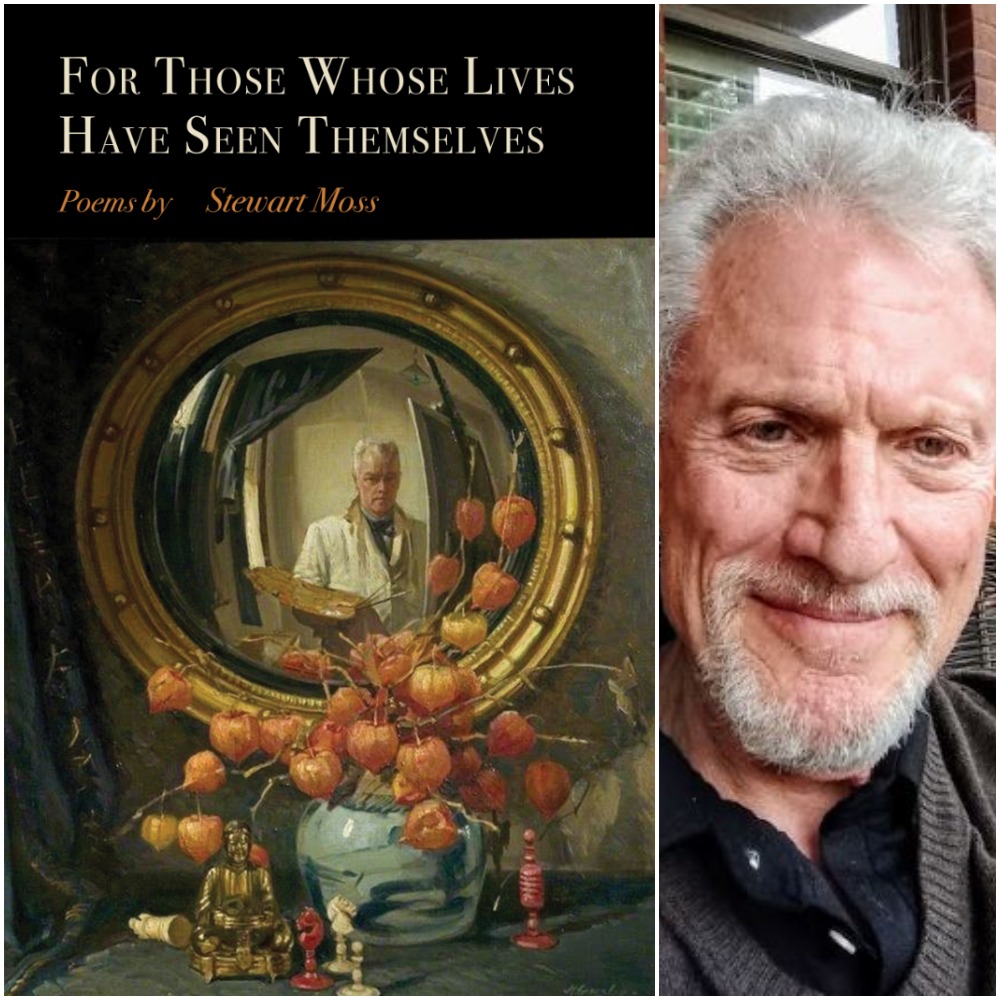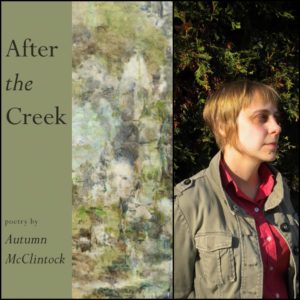For Those Whose Lives Have Seen Themselves opens with the question “What is seeing and knowing/ what I see” and launches a quest for the answer. In these palpably sensuous poems of Rilkian adoration of the natural and human world, the speaker is “in a perpetual state of unrequited love, / always exposed and reaching out/ then attending to the silence.” When this tender, devoted attentiveness is reciprocated and “…the quickening world/reaches forward and grabs the quivering brain” rhapsodies of ecstasy, imagination and language—poetry, poetry! explode on the page. Gorgeous, celebratory, healing and redemptive, this collection is essential reading for our times.
–Nancy Mitchell, The Out of Body Shop
In this extraordinary chapbook, Stewart Moss describes its theme in both the title and text of the very first poem, “A Kind of Attentiveness” — “that groping outward/breath by breath/as the quickening world/reaches forward/and grabs the quivering brain…” Isn’t it exactly this willed attentiveness that draws us to poetry in the first place? If that’s so, then Moss has us readers from the jump. And what a far-flung world it is – hallucinatory and intimate, ferocious and kind; here is Tripoli, here Amsterdam, here a park, where we sit beside our (for by this attentiveness she has become ours) daughter’s stroller. Far-flung, yes, but exquisitely, viscerally detailed (“the day hemorrhages dust/into a cloudless sky”); masterful in craft, privy to the deepest human signs and secrets (“Like Adam/in his first embrace,I was pulled into the world/of blood, then into the whiteness/that covers blood.”). But perhaps above all, it is generosity that is the animating virtue here. Consider for a moment the title poem, when the poets says, with a grand sweep of a superb host’s or magician’s arm one imagines, “Welcome all who have traveled the long road/from where your deepest dreams began/in the wild ferment of sleep,” who could resist such an offer? Who could not ask of this immensely gifted poet, Just one more, just one more? An entreaty to which Mr. Moss graciously accedes page after marvelous page. And will go on doing so, one hopes, for many years and many books to come.
–Danny Lawless, The Gun My Sister Killed Herself With, and founding editor of Plume Poetry Journal
Stewart Moss has a rare ability to draw the sublime to everyday people and situations. For Those Whose Lives Have Seen Themselves touches the ordinary with a light that can only be elevated by language and craft. Moss knows what cannot be said, and then he says it beautifully–rarifying meanings made clear and sustainable because his poems are lived experiences. These stories, sequenced with ideas and memories, make us return again and again. “Reading Buber” begins ‘Everything in the living world is connected/ to everything else.’ What an excellent description of this book where the poet’s authority and humility are so well connected. Here is a poet whose passion is vibrant on the page, making us the lucky recipients.
–Grace Cavalieri, Maryland Poet Laureate
For Those Whose Lives Have Seen Themselves:, by Stewart Moss, lays bare in contemplatively elegiac poems the plat of the poet’s heart. The emotional range and voltage of these poems is extraordinary – from pedestrian observations of the natural world to epic musings on ontology. Regardless of where his gaze lands, Moss fashions a poetry that is at once profound and accessible. This is the poetry of witness, the excavation of not only the human heart, and what keeps it beating and yearning; but also the literal terrain of exotic, often forbidden, dangerous countries that Moss explores and renders with documentary precision, and the thrumming language and aural mastery of a composer. Ultimately, this splendid volume is a meditation on shared humanity, its triumph and frailty, the precarious perch from which we all tenuously depend, testifying that “Everything in the living world is connected / to everything else. / Just the appearances of things /are different.” This is a beautifully wise book, of peace and surrender, and blinding illumination.
–Joseph Bathanti, North Carolina Poet Laureate (2012-2014) & author of The 13th Sunday after Pentecost.






Reviews
There are no reviews yet.